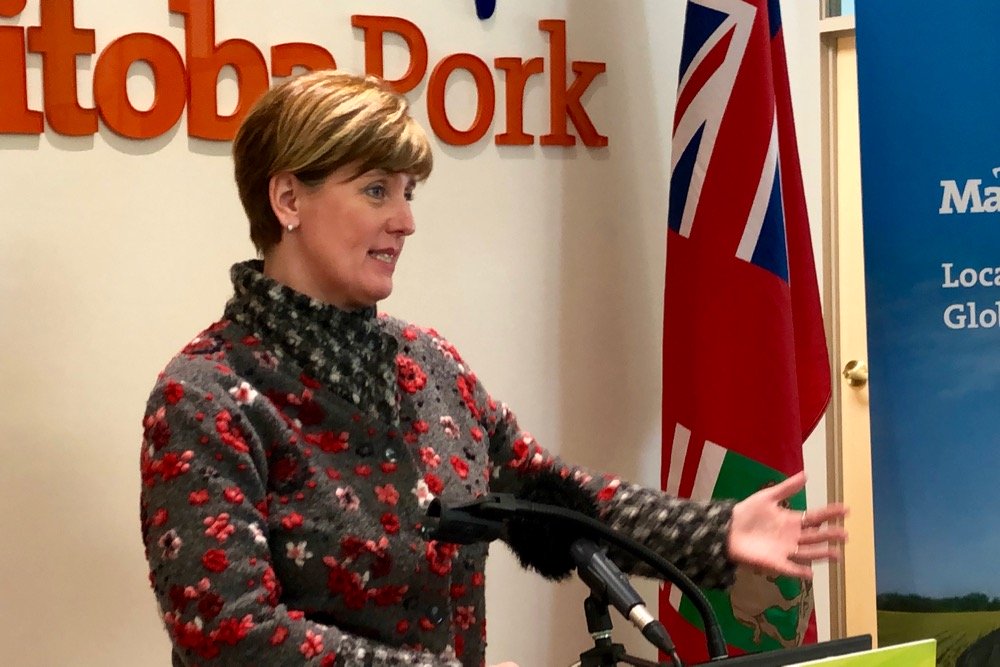Federal Agriculture Minister Marie-Claude Bibeau is not considering ordering producers to withdraw from their AgriInvest accounts.
“Not in this way. All the options are on the table for the future, but I’ve never considered asking them to withdraw, to empty their accounts, to face COVID-19,” she said in an interview Friday.
Bibeau had previously expressed disappointment at seeing over $2 billion sitting in accounts which, according to Agriculture and Agri-Food Canada (AAFC), exist to help farmers “manage small income declines and make investments to manage risk and improve market income.”
Read Also

U.S. grains: Wheat futures rise on supply snags in top-exporter Russia
U.S. wheat futures closed higher on Thursday on concerns over the limited availability of supplies for export in Russia, analysts said.
Billed as a “self-managed producer-government savings account,” an AgriInvest account can accept a farmer’s deposits up to 100 per cent of allowable net sales (ANS) in a given program year, and receive a matching government contribution on one per cent of ANS.
AgriInvest account balances are capped at 400 per cent of a producer’s average ANS from the current and two prior program years.
In 2020, there has been between $2.27 billion and $2.37 billion sitting in 99,673 active AgriInvest accounts — but the majority of those accounts have balances of less than $10,000 each.
After seeing those numbers, Bibeau said they “did not show that farmers had used their accounts very much” and it was “a bit disappointing to see that,” while encouraging producers to spend the money available to them.
Grain Growers of Canada chair Jeff Nielsen responded by saying he understood Bibeau was disappointed, “but unfortunately the federal government has not asked any other Canadian to withdraw all their savings from their savings account.
“Yet, it seems we’re being asked as producers, the few of us who have money in these accounts, to drain those accounts.”
Bibeau on Friday reiterated her longstanding commitment to improving business risk management (BRM) programs, but to do so “on evidence.”
She and AAFC officials have been “going through the programs, trying to analyze each of them in different ways to see how we can do better. If we have more money, how can we use these additional funds?”
While “not telling anything about how we will move forward,” she said, from the federal government’s viewpoint, AgriInvest “should be the first business risk management program they should be using when they face a challenge.
“This should be the easiest way, for them to take money out of these savings accounts — then when the shock becomes more significant, other programs would serve them.”
Bibeau admitted there is debate among stakeholders about the program’s purpose and said it needs to be discussed.
Certain groups of producers see AgriInvest as a way to build resilience against risk, she said, while others view it as a retirement fund.
Asked if she had ever considered closing all AgriInvest accounts or ordering, rather than asking, producers to use the money available to them in their accounts, Bibeau said she had never considered it.
“I want to look forward and improve these programs, and hopefully with the provinces we will be able to add more money as well, so I have to do it step by step, but these are cost-shared programs and the provinces will have to step in as well.”
While closing AgriInvest accounts isn’t on Bibeau’s radar and would be unprecedented in recent times, such a notion isn’t unheard of in Canadian farm programs.
The Saskatchewan government, for example, in 1996 terminated its Gross Revenue Insurance Plan (GRIP) and paid out that program’s surplus funds.
GRIP, an early iteration of AgriStability, used historical commodity prices and yields to offer revenue insurance to producers, but critics have said it distorted farmers’ seeding decisions and discouraged investment in inputs.
— D.C. Fraser reports for Glacier FarmMedia from Ottawa.




















